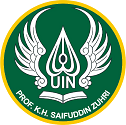Enhancing Economic Growth for the Achievement of Sustainable Development Goals through Digital Era Fundraising Schemes for Sustainable Community Development: A Policy Analysis from the Islamic Economic Perspective
DOI:
https://doi.org/10.24090/icip.v1i1.301Keywords:
fundrising, digital era, economic growth, sustainable development growth, Islamic perspectiveAbstract
This paper provides a policy analysis from the Islamic economic perspective on enhancing economic growth and achieving Sustainable Development Goals (SDGs) through digital era fundraising schemes for sustainable community development. It examines the role of zakat, sukuk, and waqf in contributing to specific SDGs in Indonesia. The study highlights the importance of inclusive and environmentally sustainable economic growth for sustainable development. It emphasizes the potential of digital era fundraising schemes in mobilizing resources and promoting sustainable development. The paper specifically explores the impact of zakat on poverty eradication and social welfare enhancement, sukuk in financing infrastructure projects and stimulating economic growth, and waqf in supporting education, healthcare, and community development. Using a qualitative research approach that includes literature review and policy analysis, the study evaluates existing policies and strategies related to digital era fundraising schemes in Indonesia. It assesses their effectiveness in achieving SDGs and identifies strengths and challenges in current policies. Based on this analysis, the paper presents policy recommendations to enhance the effectiveness of digital era fundraising schemes for sustainable community development. The recommendations advocate for comprehensive policy frameworks aligned with Islamic economic principles and the integration of digital technologies. They emphasize the importance of improving financial literacy and awareness to encourage active participation in fundraising efforts, fostering collaboration among stakeholders, and developing supportive regulatory frameworks. By implementing the proposed policy recommendations, Indonesia can harness the potential of digital era fundraising schemes to achieve specific SDGs. The paper concludes that a well-designed policy framework embracing Islamic economic principles, leveraging digital technologies, and promoting stakeholder collaboration will facilitate the effective utilization of zakat, sukuk, and waqf for enhancing economic growth and achieving sustainable development goals. Overall, this paper contributes to the understanding of how digital era fundraising schemes, guided by Islamic economic principles, can play a significant role in advancing economic growth and sustainable development. It provides policymakers, organizations, and practitioners with insights and recommendations to optimize the potential of these fundraising schemes in promoting sustainable community development and achieving SDGs in Indonesia.








